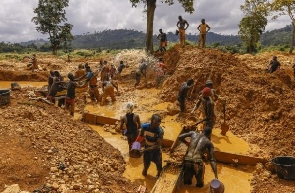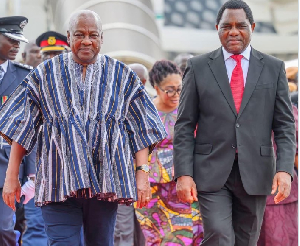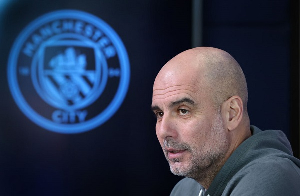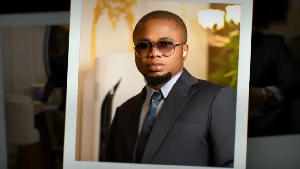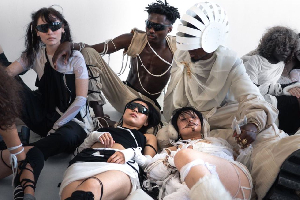Let's ask Hon. Abu Jinapor to show us a video of one sustainable community mine in Ghana! Just one sustainable mine!
We support the idea of Ghanaians being at the forefront of the mining industry and owning the majority of mines in Ghana.
However, there needs to be a bonafide effort to develop a sustainable mining model that can be taught to Ghanaians before they are certified and licensed to undertake community and small-scale mining.
Large billboards with photos of politicians that announce new community mining projects are just PR without substance!
Ghana can no longer afford to take unnecessary shortcuts that lead to death, destruction and environmental damage. Ghana is in this for the long haul! It is a journey, not a race!
Our ancestors mined gold until two Kwesi Bronis from Portugal showed up at Edina in the Western Region in 1470s! Subsequently, King John of Portugal financed the Portuguese nobleman Don Diego D'Azambuja's large expedition to establish a Castle and trading post at Edina in the 1480s. The Portuguese then named Edina "El mina" (meaning "the mine").
Our ancestors were already mining gold which they sold to the Kwesi Bronis who joined the Portuguese Gold rush in the 1500s!
Britain, Denmark and Norway, Germans (Brandenburgers), Netherlands (Dutch), Portuguese, and Sweden established Forts and in some cases Castles to pursue their trade interests. The French attempted to establish a Fort near Anomabu and failed miserably to the utter glee of the British who had a Fort close by!
The Europeans did not mine our gold! Our ancestors mined the gold and sold it to the Europeans who stayed in their Castles or Forts along the Coast or in their ships that were parked in calm waters two miles out in the Atlantic Ocean - known as "the Roads"!
There's a good reason that the Europeans named the area that the gold came from the "Gold Coast"! (The Dutch and Danes also called it the "Coast of Guinea" after the Gulf of Guinea)!
It was not until the 1800s that the British, at the invitation of local coastal business owners, brought modern mining technology that allowed more successful deep pit mining under the supervision of Mining Engineers.
The local pit mining was not very successful since the pits often collapsed and killed miners.
In the 1960s and 1970s, we had the State Mining Corporation with large-scale gold mines at Dunkwa and Prestea. Lonhro operated the Ashanti Goldfields mine at Obuasi until the late General Kutu Acheampong decided to nationalize it for Ghana!
In the 1990s, due to a derivatives debacle, Ashanti Goldfields was sold to South Africa's Anglogold.
The State Mining Corporation mines were privatized! In the early 2000s, other players such as Newmont Mining entered Ghana's gold mining sector and licenses were issued to small-scale mining companies too. The small-scale mining sector is reserved by law for Ghanaians.
Ghana earns 10% of the value of minerals mined as royalty! This is very small compared to the value of Ghana's minerals. In 2019, Ghana was the largest producer of gold in the World! What does Ghana have to show for this? The mining towns are run down and eyesores with limited amenities for the residents.
The opening of the small-scale mining sector, unfortunately, led to the emergence of illegal galamsey mining operators.
Most of the small-scale miners use the same destructive mining process as the illegal galamsey miners. They have caused tremendous damage to parts of Ghana's land, farms and rivers, and lagoons! The polluted rivers have also had a negative impact on the health of people in affected communities.
As stated Ghana is not in a race! This is a long-term journey! It would behove the Ministry of Lands and Natural Resources and the Minerals Commission to partner with Ghana's universities to develop a sustainable mining model that ensures that rivers remain pristine and that environmental degradation is minimized.
Until such a sustainable small-scale mining model is developed, we say in no uncertain terms: "HALT Community Mining, small-scale mining and galamsey!"
Communities need to stand up for themselves and ask the Ghana Government to halt community mining projects until sustainable mining practices are taught prior to certification and licensing!
In the meantime, alternative livelihoods that involve agriculture, food processing, crafts and tourism need to be emphasized and implemented!
A word to the wise is enough! " YEN ARA ASASE NI!"
Opinions of Tuesday, 29 November 2022
Columnist: Audrey Quaye

